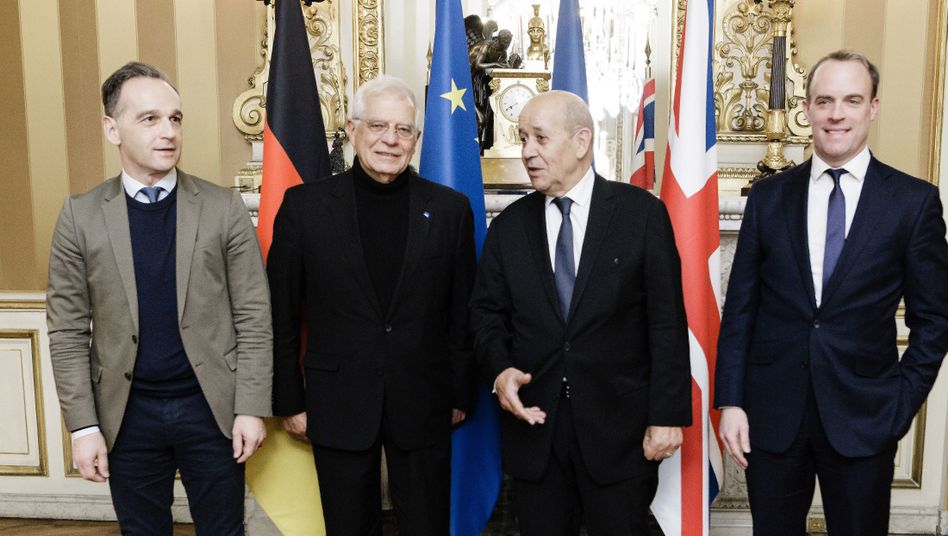Today will be the 70th #Königswinter Conference, the annual British-German exchange that brings together great people from the respective governments, parliaments, industries and academia.
It is also a good time to reflect on British-German relations four years into #Brexit.
It is also a good time to reflect on British-German relations four years into #Brexit.
The good: Foreign and Security Policy has been mostly shielded from Brexit, even during the most difficult negotiations.
The E3 cooperation is going strong, and Germany and the UK continue to cooperate closely in other international fora such as the G7 or the UN.
The E3 cooperation is going strong, and Germany and the UK continue to cooperate closely in other international fora such as the G7 or the UN.

The bad: From a German perspective, the EU was the most important framework to engage with the UK.
Trade has already suffered, even before the UK has left the transition period.
On many issues the UK is now not in the arena most relevant for German economic policy.
Trade has already suffered, even before the UK has left the transition period.
On many issues the UK is now not in the arena most relevant for German economic policy.

The ugly: What has really suffered is the public perception of the UK in Germany.
#Brexit has largely been characterised as mad, chaos is the most used word to describe UK politics.
The latest moves to violate legal commitments reinforces that image of a friend gone mad.
#Brexit has largely been characterised as mad, chaos is the most used word to describe UK politics.
The latest moves to violate legal commitments reinforces that image of a friend gone mad.

My Outlook: Much of this overblown. I expect UK-German cooperation to get closer once the toxic Brexit negotiations hopefully end with a deal.
But Königswinter will also be an opportunity to remind UK that anacrimonious no deal Brexit wd also severely impact bilateral relations.
But Königswinter will also be an opportunity to remind UK that anacrimonious no deal Brexit wd also severely impact bilateral relations.
To have these open exchanges, it is all the more sad that this year's conference can only take place with a digital connection between London and Berlin. Ahead of the crunch moment of Brexit negotiations, this would have been the perfect moment for frank informal conversation.
Finally, if you are interested in #Königswinter, read this great history by @HeleneBismarck looking back at the past 70 years of this informal British-German exchange:
debrige.de/2019/04/01/now…
debrige.de/2019/04/01/now…

#Königswinter kicked off with a discussion on foreign policy cooperation - as written earlier an area less affected by #Brexit, but challenged nevertheless. Looking forward to the discussion with Michael Gove next.
https://twitter.com/GermanAmbUK/status/1309150208568295431?s=19
• • •
Missing some Tweet in this thread? You can try to
force a refresh








